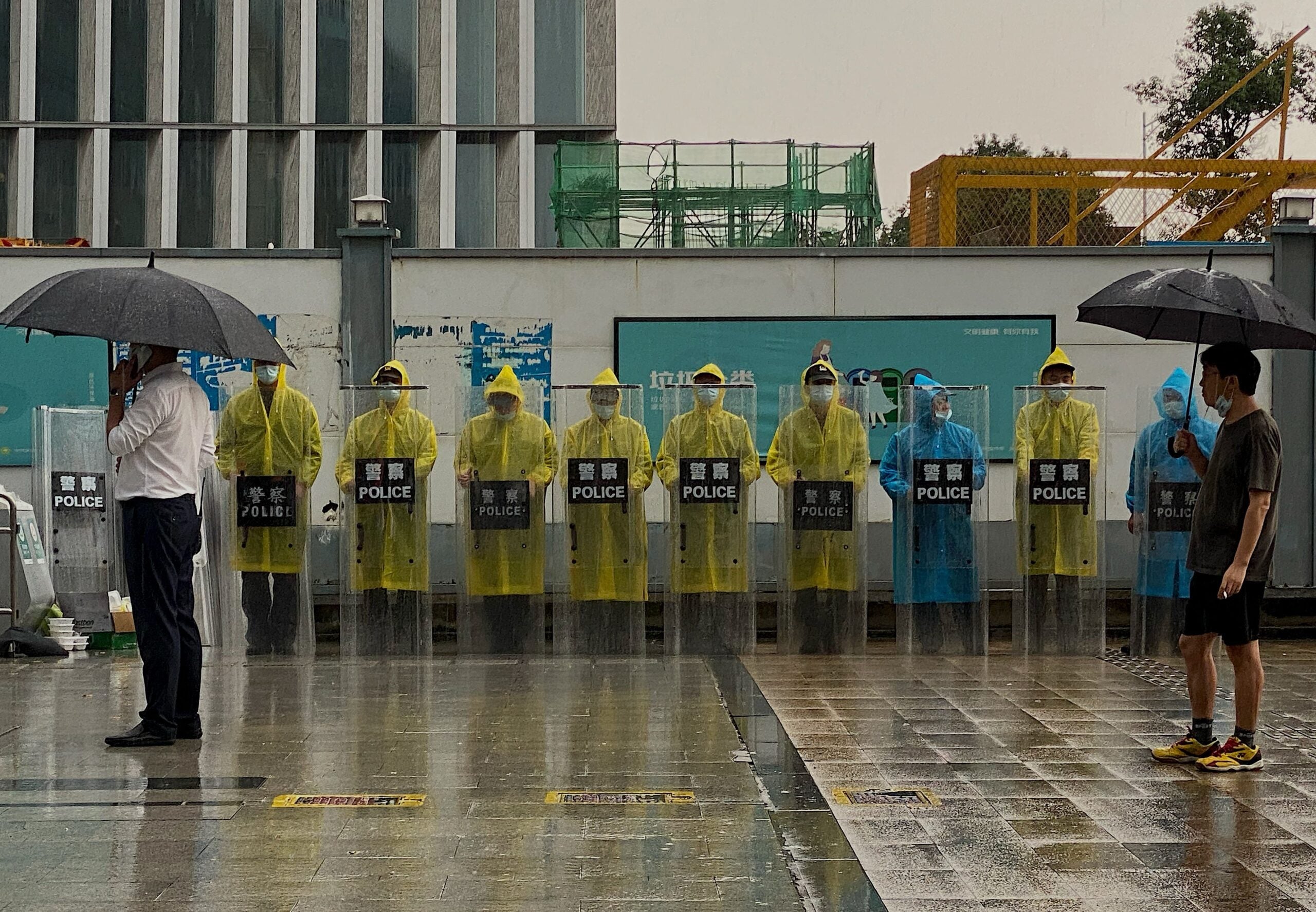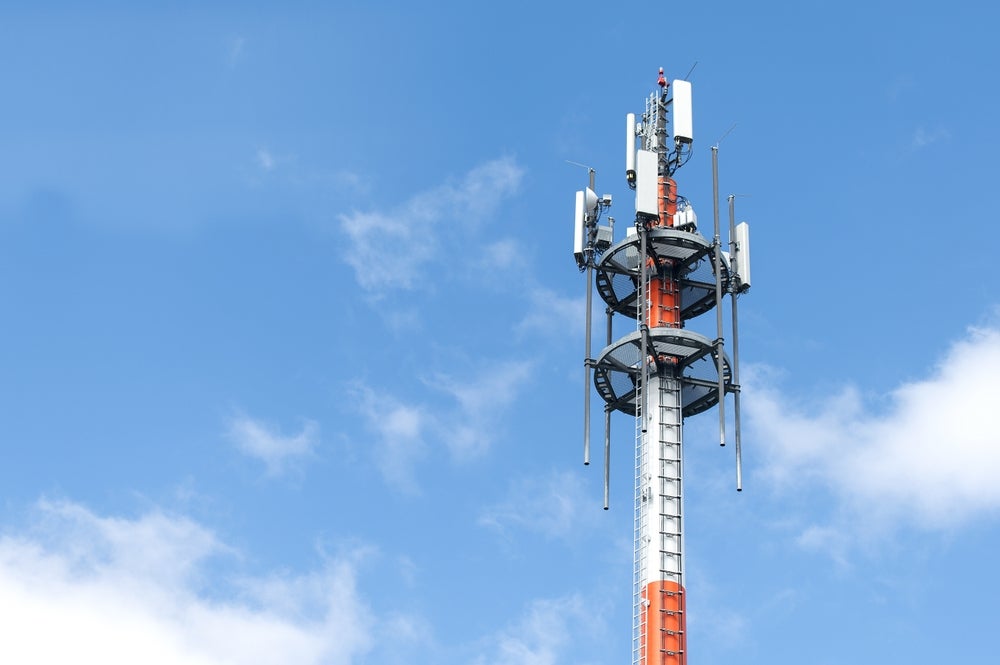
Shares in Evergrande, the most indebted property developer in China, have plummeted after it detailed the extent of its financial problems. The company hired restructuring advisers as it faces mounting pressure from protestors at home.
In a statement filed to the Hong Kong Stock Exchange (HKEX), Evergrande disclosed that it is struggling to sell assets fast enough to service its 1.97tn yuan (US$305bn) debt, saying that its cash flow was under “tremendous pressure”.
The announcement came a few hours after angry protesters besieged the company’s headquarters in Shenzhen on Monday. In its statement to the HKEX, Evergrande said that the “ongoing negative media reports concerning the Group have dampened the confidence of potential property purchasers.”
The company said it had hired Houlihan Lokey and Admiralty Harbour Capital to evaluate its liquidity and “explore all feasible solutions” to ease its towering debt crisis. However, it denied rumours of bankruptcy and reorganisation.
Chinese newspaper Caijing quoted the company as saying that “although we have indeed encountered unprecedented difficulties, we are assuming corporate responsibility and going all out to resume production and deliver buildings. We are doing everything possible to resume normal operations and fully protect the legitimate rights and interests of customers.”
On Monday, Evergrande announced three new methods to repay its debts. Investors can choose to receive repayments through cash instalments, accepting 10% of their principal and interest of matured products now and the remainder through 10% instalments each quarter. Or, they can accept payments through property assets or use the outstanding product value to offset the balance of any Evergrande residential unit bought.
How well do you really know your competitors?
Access the most comprehensive Company Profiles on the market, powered by GlobalData. Save hours of research. Gain competitive edge.

Thank you!
Your download email will arrive shortly
Not ready to buy yet? Download a free sample
We are confident about the unique quality of our Company Profiles. However, we want you to make the most beneficial decision for your business, so we offer a free sample that you can download by submitting the below form
By GlobalDataEvergrande shares ended Tuesday’s trading in Hong Kong down by almost 12%. The firm’s shares have fallen by more than 80% in the last six months. Shares of Evergrande New Energy, the electric car company, dipped 22%.
Police were deployed on Monday to keep order as the demonstrations persisted, according to videos circulating online. By Tuesday afternoon, police had cleared the building of protesters, although a group of Evergrande suppliers who have not been paid lingered at a sit-in outside, according to the Financial Times.
The company’s chairman, Xu Jiayin, promised in an internal meeting on Friday that the firm would repay all of its matured wealth management products as soon as possible. “I can have nothing, but investors of Evergrande Wealth Management cannot have nothing,” he said.
To reduce its debts, Evergrande is seeking to slash costs and sell assets, including stakes in an electric vehicles business and a property services group, both of which are listed in Hong Kong, as well as a flagship property in the territory.
“The repayment must be settled fairly … We must make every attempt to repay our investors according to the plan,” Xu added, as cited in Chinese media.
What a possible default of Evergrande could entail
As China’s largest property developer, Evergrande’s case sheds light on the perilous state of the country’s property sector. The news of Evergrande’s possible default sent shockwaves across global markets and dealt a severe blow to its bonds, triggering trading suspension in Shenzhen and Shanghai earlier this month.
Evergrande is backed by big international investors, including Allianz, Ashmore and BlackRock. A default is likely to have spillover effects on global markets, where in the past there has been Chinese government support in times of trouble.
The company’s liabilities involve more than 128 banks and over 121 non-banking institutions, according to the letter Evergrande sent to the government in 2020. JPMorgan estimated last week that China Minsheng Bank has the highest exposure to Evergrande.
In the dollar bond market, Evergrande accounts for 4% of Chinese real estate high-yields, according to DBS. Any defaults will also trigger sell-offs in the high-yield credit market.
Additionally, the collapse of Evergrande, if it should happen, would have a significant impact on the Chinese job market. It has 200,000 permanent staff and hires 3.8 million people every year for project developments, according to Reuters.
Beyond markets, the most important issue for Beijing would be any impact on the broader property sector, which has been a central engine of China’s booming economy for decades — but which has come under strain from tightened credit conditions.
How it all started with China property
Concerns arose after Evergrande admitted in June it did not pay some commercial paper on time, and news in July that a Chinese court froze a $20mn bank deposit held by the firm on the request of Guangfa Bank.
Earlier this month, the problem intensified after a leaked letter showed that Evergrande had pleaded for government support to approve a now-dropped backdoor listing plan, warning it faced a cash crunch.
In recent days, the company’s liquidity problems escalated after several of its subsidiaries failed to repay wealth management products, a key source of short-term funding for Evergrande and other developers.
Evergrande was founded in 1996, and chair Xu Jiayin became the richest man in China two decades later as it helped spur the country’s urbanisation. The company is seen as crucial to the health of China’s financial system because of its vast debts, which it needs to service continually through cash sales of its apartments.
However, the latest scandal highlights how China’s property market is still often driven by politics and improvisation rather than market forces and the rule of law, an issue that coincides with the country’s recent crackdown on the internet and the tech industry at large.
The People’s Bank of China and the China Banking and Insurance Regulatory Commission summoned Evergrande’s executives in August and warned that it needed to reduce its debt risks and prioritise stability.
Evergrande must “actively diffuse debt risk and maintain real estate and financial markets stability,” they said in a joint statement, and “earnestly implement strategic arrangements made by the central government to ensure the stable and healthy development of the real estate market, and strive to keep operations stable”.







